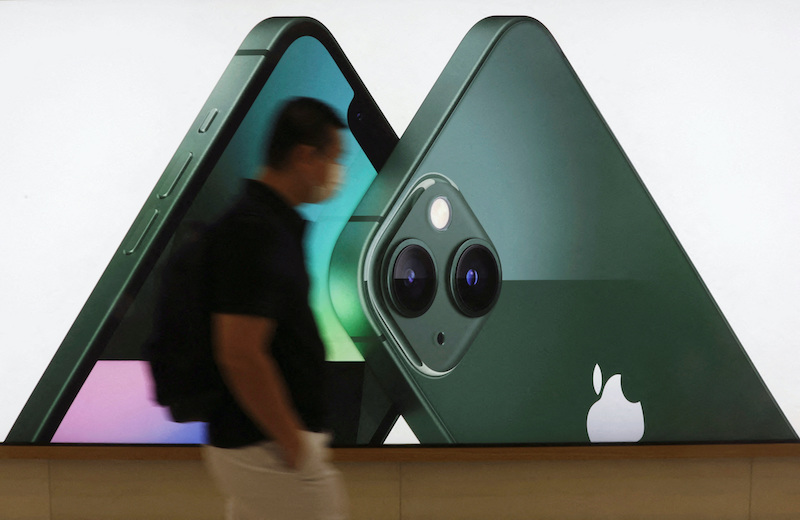China has ordered officials at central government agencies to stop using Apple’s iPhones for work, mirroring similar bans on Chinese tech use in the US, the Wall Street Journal reported on Wednesday.
In recent weeks, staff were given the instructions by their superiors in workplace chat groups or meetings, according to the report, and also told not to use other foreign-branded devices or bring them into the office.
The ban comes ahead of an Apple event next week that analysts believe will be about launching a new line of iPhones, and could trigger concerns among foreign companies operating in China as Sino-US tensions escalate.
The WSJ report did not name other phone makers besides Apple and the iPhone maker’s shares fell 0.7% in pre-market trading.
Also on AF: Tesla Sues China Chip Designer for ‘Stealing Tech Secrets’
For over a decade, China has been seeking to reduce reliance on foreign technologies, asking state-affiliated firms such as banks to switch to local software and promoting domestic semiconductor chip manufacturing.
Beijing ratcheted up this campaign in 2020, when its leaders proposed a so-called “dual circulation” growth model to reduce reliance on overseas markets and technology, as its concerns over data security grew.
In May, China urged big state-owned enterprises to play a key role in its drive to attain self-reliance in technology, raising the stakes in the race amid rifts with the United States.
Sino-US tensions have been high as Washington works with allies to block China’s access to vital equipment needed to keep its chip industry competitive, and Beijing restricts shipments from prominent US firms including planemaker Boeing and chip company Micron Technology.
Several analysts said on Wednesday that the reported move showed Beijing was not willing to spare any US company in its push to reduce its dependence on American technologies.
China a Key Apple Market
“Even Apple is not immune … in China where it employs hundreds of thousands, if not more than a million workers, to assemble its products through its relationship with Foxconn,” DA Davidson analyst Tom Forte said.
This “should inspire companies to diversify both their supply chain and customer concentrations to be less dependent on China in the event the tensions get worse.”
China is one of Apple’s biggest markets and generates nearly a fifth of its revenue.
No immediate impact is expected on earnings, however, considering the popularity of the iPhone in China, CFRA Research analyst Angelo Zino said.
During a visit to China last week, US Commerce Secretary Gina Raimondo said US companies had complained to her that China had become “uninvestible”, pointing to fines, raids and other actions that have made it risky to do business in the world’s second-largest economy.
The latest restriction by China mirrors similar bans taken in the United States against Chinese smartphone maker Huawei Technologies and short video platform TikTok, owned by China’s ByteDance.
- Reuters with additional editing by Sean O’Meara
Read more:
New Huawei Phone Spurs Fear China Got Around US Chip Curbs
Malaysia Warned by US, EU Over Huawei 5G Role Bid – FT
Apple Revenue Forecast Cut as Covid Curbs Hit iPhone Output
US Blocking Export of 4G Chips, Items for China’s Huawei
























